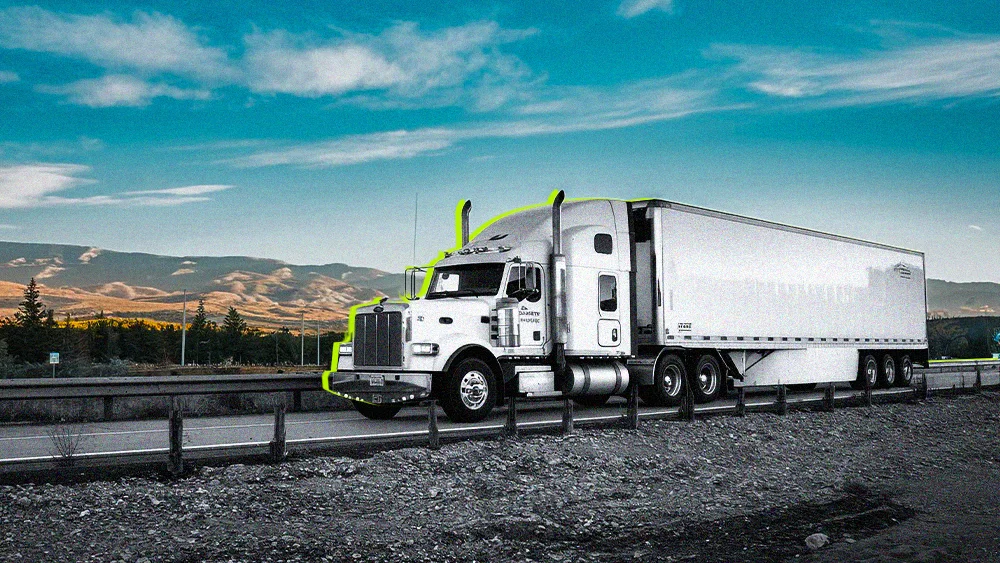Manufacturing and Logistics
Freight sales favors staying power over job hopping, recruiters say
Monday June 16, 2025

Job hopping in freight sales is increasing, but frequent changes can harm reputations and career prospects.
The freight industry lags in technology adoption, making human connections crucial for success.
Post-COVID, freight sales compensation is shifting towards commission-based pay, requiring quick performance validation.
Successful freight sales reps diversify their knowledge across sectors like reverse logistics and white glove services.
It’s so easy to be a job hopper in this industry now. But especially in a sales capacity, if you're only lasting a year and a half and then moving to the next one, that just tells me that you can't sell.

Kelly Brown
Recruiter Extraordinaire, Acclaim Recruiters
Job hopping is rising in freight sales, but so is employer caution. In a volatile industry, short stints can raise red flags. Staying power is what sets top performers apart.
Kelly Brown has seen the freight world from both sides, first as a top performer, now as a Recruiter Extraordinaire at Acclaim Recruiters. In a market full of movement and churn, she makes the case for staying power over constant jumping.
Hop at your peril: Brown’s core warning is clear: Frequent job changes can backfire. "It’s so easy to be a job hopper in this industry now," she says. "But especially in a sales capacity, if you're only lasting a year and a half and then moving to the next one, that just tells me that you can't sell."
Green is a red flag: For Brown, real success in freight sales is a long game. "To succeed in this specific industry, it's kind of like working out—you have to put the time in, and that’s where your efforts are going to show," she says. She contrasts that with the "mind-blowing" expectations of some younger reps who’ve spent just a few years in the field and already see management as the next step.
In the freight world’s "small, tight knit group," Brown notes, reputations travel fast. "When the opportunities that are meant for you come up, that’s when people are going to approach you." For her, recruiting is "professional matchmaking"—connecting companies and candidates in relationships built to last.
Tech lags, people last: Brown points out that the freight industry is "slower to catch up" with technology, especially compared to fields like recruiting, where AI is already streamlining outreach and hiring. Tools like LinkedIn may boost efficiency, but she insists "the people aspect is uber important in a cyclical business like freight." Even if an all-in-one, Amazon-style TMS emerges, Brown says, "there’s still going to be a need for drivers and the carriers."
To succeed in this specific industry, it's kind of like working out—you have to put the time in, and that’s where your efforts are going to show.

Kelly Brown
Recruiter Extraordinare, Acclaim Recruiters
Earn it or exit: Compensation plays a big role in why sales reps stay—or don’t. "Prior to this wonky couple of years," Brown says, "companies were willing to pay top reps high base salaries." But post-COVID, many found big guarantees dulled motivation. Today’s trend? Leaner base pay, heavier on commissions and accountability. Add in non-competes—still alive and well despite legal scrutiny—and the message is clear: "You really need to prove yourself quickly," says Brown.
Resume roulette: How companies find talent varies wildly, and not always wisely. Some, Brown says, "really want to get granular, with a very intricate hiring process"—despite having little to offer top reps. Meanwhile, seasoned recruiters can spot a standout résumé in seconds. A good recruiter, she argues, "can assist both sides in the negotiation," unlike those who "just throw spaghetti at the wall and just hope it sticks."
The wild west: According to Brown, the freight industry is akin to "the wild west," where sales reps are often "the face to the customer." Success, she says, takes more than staying power. "Good salespeople are hard to come by," says Brown, and the real standouts diversify by building knowledge across sectors: "reverse logistics, contract logistics, white glove. There’s value in that."